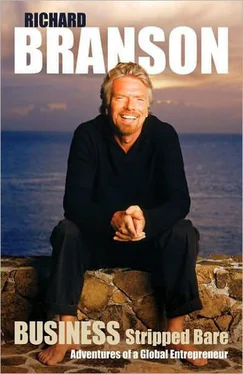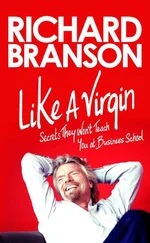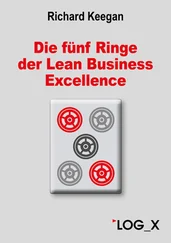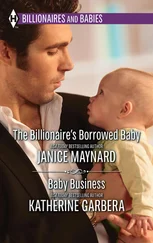Inefficient corn ethanol started the ball rolling in the United States, aided by massive government subsidy, while the Brazilian experience has long since proven the viability of sugar cane. Brazil has over thirty-five years’ experience of using it as a fuel, and in 2008, its cars consumed more ethanol than fossil fuels. The primary feedstocks for the production of renewable fuel are sugar from sugarcane, and starch from corn, the source of most US-based ethanol. Corn ethanol has become a major concern because of its impact on food production. In Asia, tapioca, potatoes and other starches can also be used. But I cannot now see the benefit in growing food and using it for energy when people around the world are starving and basic food prices are rising elsewhere.
So I became interested in the discussion regarding the tonnage per acre of plants with no food value. Prairie grass, willows, corn stalks and wheat straw all can be used to manufacture cellulosic ethanol. I spoke to John Ranieri, vice president of biofuels at the chemical giant Dupont. I was interested in how the big players were tackling this. John’s a very sound guy, and he gave me some excellent advice and information. He told me about Dupont’s strategy to bring biobutanol and cellulosic ethanol technologies to market. This led to discussion with Ian Ferguson at Tate & Lyle, the sugar giant. We began to think that the Dominican Republic might be a suitable place for a sugar refinery and then considered a prairie-grass plant in Louisiana. Our research also led the Virgin Green Fund to make an investment in Gevo, a world-class biofuels company that converts biomass into butanol. It was important to invest in the development of many clean energy solutions, not just one.
We talked to Iogen, which was already turning some of the Canadian prairie’s vast cellulosic waste into ethanol and had a 40-million-gallon plant making E10 biofuel for cars. We spoke to Cargill, one of the world’s largest food and agricultural companies. We went to Brazil to look for joint venture partners.
We even played with coconuts.
Now, coconuts will never solve a global energy crisis. But they have a few things going for them. For a start, they thrive on sandy beach areas in the tropics, where other plants don’t grow well. The market for copra — coconut flesh — has been falling worldwide, and so has the price, leading to declining incomes in regions heavily dependent on copra production, so it would be great to find another use for this important crop. The low return for the harsh work involved with the cutting and drying of copra has pushed many rural farmers into other cash crops, leaving unharvested coconuts lying on the beaches. It may be that the harvesting of coconuts on a large scale can bring much needed income to these areas.
Coconut oil in engines is not new. It was used in the Philippines during the Second World War when diesel was in short supply. Today, on the islands of Vanuatu in the Pacific Ocean, an Australian entrepreneur, Tony Deamer, has succeeded in using coconut oil in fuel for motor vehicles. Potentially, this enterprise could help to revitalise the market for copra and have wide-ranging environmental benefits as well. Tony, together with a local coconut-oil producer, has been negotiating with the government for a reduction of duty on coconut oil-based mixtures. In Vanuatu, the local electricity company UNELCO has been using diesel blended with coconut oil to run a large (and now pleasantly perfumed) four-megawatt generator.
I did some basic sums and quickly confirmed what we all suspected, that the sheer labour of breaking into the things and scooping out the flesh made coconuts an unlikely player on the world biofuel scene. Coconut oil was, however, an excellent local solution.
In general, I think that the debate about biofuels gets too easily hung-up on this or that single ‘solution’, its merits and demerits. We don’t have to find a single biofuel that will do everything for everyone. What we can and should develop is a suite of solutions that work well in different places, for different purposes, and at different scales. It should, for example, be possible to cut dramatically the human carbon footprint by introducing bio-ethanol for cars and buses. Flying will require a major breakthrough, however.
That’s why it was important to us that we prove, in principle, that we could fly a commercial airliner on biofuels. To demonstrate this principle, it didn’t strictly matter what biofuel we used, or whether or not it could be scaled up. It just had to keep a Boeing in the sky. On Sunday 24 February 2008, we flew Cosmic Girl , a Virgin Atlantic Boeing 747–700, on a test flight from London to Amsterdam. A 747 has four engines, and in one of the engines, for the first time, we used, not fossil fuel, but a mixture of coconut oil and oil from a related fruit, the Brazilian babassu nut. No modifications were made to either the aircraft or its engines to enable the flight to take place.
The demonstration flight, piloted by Captain Geoff Andreasen, Virgin Atlantic’s chief Boeing pilot, took off from Heathrow at 11.30 a.m. and arrived in Amsterdam at 13.30 local time. It was a quiet, intense affair: during the flight, technical advisers on board monitored readings and recording data for analysis. The flight was a success: we had shown that it was possible to fly a plane at 35,000 feet on cleaner fuels. Now the challenge was to develop a biofuel that would scale up, and that wouldn’t eat into the food supply.
That work continues. Imperium Renewables, who manufactured our experimental fuel, have since opened one of the world’s largest biodiesel refineries at Grays Harbor, Washington State, in the United States. It’s capable of producing up to 100 million gallons of biofuel per year. The company has formed a subsidiary in Hawaii to develop another biodiesel production facility, which will likewise provide 100 million gallons of biodiesel fuel a year, using locally produced feedstock, including coconuts.
Meanwhile John Plaza, president and CEO of Imperium, is overseeing the development of a ‘second generation’ bio-jet fuel, harvesting algae which can be grown in fresh or sea water. I think that, for us, this approach promises a great deal.
Some people have asked why don’t I give straight to charity the profits I have pledged to clean technologies and renewable energy. But that won’t do the trick. There is a time for giving in a charitable way, but where there are business opportunities to be had, one is much better off harnessing the might of the commercial sector to one’s cause. Given our rapidly rising population and the consequent environmental pressure, our solutions have to be technological as well as social. I’m not saying: let the market dictate everything, and all will be well. Quite the opposite — I’m saying: let’s use our position in the market for the greater good and prove there is money in greener technologies. That’s what Virgin Green Fund is trying to do.
Business has a duty to continue to push the boundaries. In the next ten years, we’ll all head into unknown territory. There will be a vast increase in our demand for energy — yet I believe we may well have passed the point of ‘peak oil’, and that it is now starting to run short relative to demand. Carbon fuel prices look set to remain high, and alternative fuels are urgently needed. It is not beyond the wit of man or woman to come up with an answer. And if we go into this for the right reasons, in a concerted way to tackle climate change, we will, on the way, definitely create some very exciting and successful new businesses and technologies for the future.
Most of them will be small businesses. If the complex and often overheated debates about climate change have taught us anything over the years, they’ve taught us that local solutions and small initiatives punch well above their weight, while broad-brush initiatives get horribly bogged down in their own complexity, and very often have unintended and sometimes damaging consequences. I say this as a global businessman, working at a global scale on global problems.
Читать дальше












